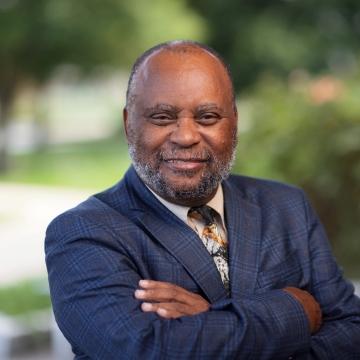Bernard Freamon

Education
J.S.D., Columbia University
L.L.M., Columbia University
J.D., Rutgers University School of Law (Newark)
B.A., Wesleyan University
Professor Freamon brings a unique and impressive set of qualifications to the job. A Professor of Law Emeritus at Seton Hall Law School, he has visited on the law faculties of the University of Nairobi, Washington and Lee University, Rutgers University (Newark), and Pace University, and he has served as an adjunct faculty member at New York University School of Law for the past four years, teaching Islamic Jurisprudence. He also recently taught an innovative course on slavery and human trafficking, based in Zanzibar, Tanzania, and sponsored by the Global Education Program at George Mason University.
Professor Freamon began his legal career working as a project director for the American Civil Liberties Union, focusing on the representation of underrepresented persons in civil rights and civil liberties litigation. He also has extensive experience in clinical legal education. As founding director of Seton Hall’s Center for Social Justice, he participated in extensive litigation in the federal courts, including the Supreme Court of the United States, involving claims under the First, Fifth, Sixth, Eighth and Fourteenth Amendments. In addition, he has worked on a variety of issues in the state courts related to the wellbeing of the poor, the underrepresented, religious minorities, lawyers, prisoners and criminal defendants.
In recent years, much of Professor Freamon’s research and writing has focused on Islamic law and jurisprudence. He recently published the first comprehensive legal history of slavery and abolition in the Muslim world and he is currently at work on a textbook for law students on slavery and human trafficking. It was his work in this area of law in particular that drew him to RWU Law.
“When I heard that Roger Williams had an opening for someone to direct this program, I thought, “Well, this is actually what I’m trying to do, too, in my teaching and in my scholarship.” It was a confirmation of what I was already thinking and doing. It was just a natural fit.”
In December, Professor Freamon was elected co-chairperson of the Bristol Middle Passage Port Marker Project. Many do not know that Bristol, Rhode Island was a center and entrepot of the Transatlantic Slave Trade in 18th and early 19th century America. The Bristol Middle Passage and Port Marker Project, affiliated with UNESCO, recently received approval from the Bristol Town Council to erect a memorial, in Bristol’s Independence Park, to the African and Indigenous victims and survivors of the Transatlantic Slave Trade.
Books and Book Chapters
Possessed by The Right Hand: The Problem of Slavery in Islamic Law and Muslim Cultures (Leiden: Brill, 2019)
"Slavery and Society in East Africa, Oman and the Persian Gulf," in What is a Slave Society? The Practice of Slavery in Global Perspective, edited by Noel Lenski and Catherine M. Cameron (Cambridge; New York: Cambridge University Press, 2018)
"Straight, No Chaser: Slavery, Abolition and Modern Islamic Thought," in Indian Ocean Slavery in the Age of Abolition, edited by Robert Harms, David W. Blight, and Bernard K. Freamon (New Haven: Yale University Press, 2013)
Indian Ocean Slavery in the Age of Abolition (New Haven: Yale University Press, 2013) (co-editor with Robert Harms and David W. Blight)
"Slavery," in Encyclopedia of Islamic Political Thought, edited by Gerhard Bowering, Patricia Crone, and Mahan Mirza (Princeton: Princeton University Press, 2012)
"Definitions and Conceptions of Slave Ownership in Islamic Law," in The Legal Understanding of Slavery: From the Historical to the Contemporary, edited by Jean Allain (Oxford: Oxford University Press, 2012)
"Islamic Law and Trafficking in Women and Children in the Indian Ocean World," in Trafficking in Slavery's Wake: Law and Experience of Women and Children, edited by Benjamin Lawrance and Richard L. Roberts (Athens: Ohio University Press, 2012)
"The Emergence of a New Qur'anic Hermeneutic and the Role and Impact of Universities in West and East," in The Law Applied: Contextualizing the Islamic Shari'a, edited by P. Bearman, W. Heinrichs, and B. Weiss (London: I.B. Taurus, 2008)
"Action Research for Justice in Newark, N.J.," in Educating for Justice: Social Values and Legal Education, edited by Jeremy Cooper and Louise Trubek (Aldershot, UK: Ashgate Publishing, 1997)
Evidence: Cases and Problems, 2nd ed. (Harrison, Norcross, Ga., 1995) (with Warren D. Bracy, Ronald D. Raitt, Ivan E. Bodensteiner, and James Marshall Klebba)
Articles
Are the Persian Gulf City-States Slave Societies? Aeon Essays, 2021, https://aeon.co/essays/are-the-persian-gulf-city-states-slave-societies
Review of Jonathan A.C. Brown, Slavery and Islam (London: Oneworld Academic, 2019) 4 Journal of Islamic Ethics, 1-5 (2020)
Toward the Abolition of Slavery under the Aegis of Islamic Law, The Comparative Jurist, William and Mary Law School’s International and Comparative Law Blog, May 1, 2020, https://comparativejurist.org/2020/05/01/toward-the-abolition-of-slavery-under-the-aegis-of-islamic-law/
ISIS, Boko Haram, and the Human Right to Freedom from Slavery under Islamic Law, 39 Fordham International Law Journal 245 (2015)
Ideological Origins of Anti-Slavery Thought, 1 Encyclopedia of Antislavery and Abolition, pp. 345-357 (2007)
Qur’an and Antislavery, 2 Encyclopedia of Antislavery and Abolition, pp. 555-560 (2007)
Some Reflection on Post-Enlightenment Qur’anic Hermeneutics, 2006 Michigan State Law Review 1403
The Origins of the Anti-Segregation Clause in the New Jersey Constitution, 35 Rutgers Law Journal 1267 (2004)
Martyrdom, Suicide, and the Islamic Law of War: A Short Legal History, 27 Fordham International Law Journal 299 (2003)
Slavery, Freedom, and the Doctrine of Consensus in Islamic Jurisprudence, 11 Harvard Human Rights Journal 1 (1998)
A Blueprint for a Center of Social Justice, 22 Seton Hall Law Review 1225 (1992)
Peer Review Physicians and the State Action Exemption: Are They Protected When They Act in Bad Faith?, 9 Preview of U.S. Supreme Court Cases 247 (1988)
A Review of the Right to Die for Terminally Ill Patients, 1 Yale L. & Pol'y Rev. 80 (1982) (with Linda Mehling)
Death with Dignity Laws: A Plea for Uniform Legislation, 5 Seton Hall Legislative Journal 105 (1982)

